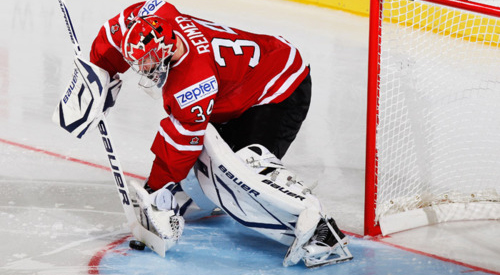
Canada’s demise at the World Hockey Championships
For the second straight year Team Canada arrived home from the IIHF World Hockey Championships with the bitter taste of a quarter-finals exit in their mouth.
Historically, Canada has not dominated the spring championship, as they have captured just five gold medals since professionals began playing in 1976.
Conversely, it is rare for Canada to be shut-out of the medal round entirely (aside from a nine-year stretch from 1969-1977). This year’s result, which dropped Canada to fourth in IIHF world rankings, was described by Hockey Canada president Bob Nicholson himself as “totally unacceptable”.
Nicholson’s sentiment is shared by thousands of Canadians. To them, it does not matter that Canada sent their second youngest team since 1977 and that this will be a valuable experience for players who could represent Canada in future competitions. A successful final result is what puts smiles on faces.
The difference between losing in the quarter-finals and losing in the gold medal game is negligible for the average fan. The mentality among Canadians is first or worst. If Canada does not win gold, regardless of the stage, the competition was a failure – plain and simple.
There is a long history of this emotion among Canadians.
[php snippet=1]
In Roy MacSkimming’s book Cold War: The Amazing Canada-Soviet Series of 1972, Alan Eagleson — then executive director of the NHLPA — is quoted as saying, “We gotta win in eight games. Anything less than an unblemished sweep of the Russians would bring shame down on the heads of the players and the national pride.”
While Eagleson’s reputation has certainly diminished since the Summit Series, his statement embodies the idealism Canadians were expressing at the time.
Canadians’ expectations are no longer quite as bold, curtailed after the Soviets proved during the Summit Series that even if hockey was still Canada’s game, the margin between Canada and the world was not as wide as once believed. Furthermore, the large influx of skilled European players into the NHL has made it impossible to ignore that there are many countries with a talent pool capable of not only competing, but winning any substantial tournament.
While national identity and pride were at stake during the Summit Series, ultimately creating an intense fervor in Canada, there is decidedly less interest in the annual World Hockey Championship.
Canadians still expect victory at every tournament, but a disappointing finish in the WHC does not bring the same national outrage that a mediocre performance at other tournaments such as the Olympics or even the World Junior Hockey Championship evokes. The Canadian response towards the WHC is tepid, which is in stark contrast to the excitement that the tournament creates in Europe.
Bruce Peter, who runs SB Nation‘s Puck Worlds, in a conversation with The Good Point, explained how the difference is based on the structure of the European hockey leagues.
Peter said the hockey season in Europe “builds towards the World Championship” and that playoffs in European leagues last until mid-April, meaning hockey’s year-end culminates in the WHC.
Additionally, Peter mentions that while there is strong club play in Europe, national team competitions are the best hockey you can see overseas.
“It isn’t very practical for hockey fans in Finland or Switzerland to stay up into the early morning just to watch some Eastern Conference NHL games, let alone Western Conference,” Peter said.
The WHC does not have such a devoted following in Canada because it directly conflicts with the Stanley Cup playoffs, a scheduling conflict that sees many of the best NHLers absent from the WHC. It doesn’t help the cause when, in certain instances, players eliminated from the playoffs during the opening rounds decline invitations to participate in the tournament, further reducing the amount of top-tier NHL talent.
In Monday’s Dreger Report TSN‘s Darren Dreger wrote that Hockey Canada is considering including the WHC in the participants form that all federations and players must sign to compete in the Winter Olympics. This would mean that players hoping to represent Canada during the Olympics would also have to play in the World Championships.
Wouldn’t that be a conundrum for some?
Implemented or not, for now the World Championships fail to capture the interest of most Canadians. Judging by the reaction it receives in Europe, though, it’ll be just fine in the grand scheme of things.
[php snippet=1]

